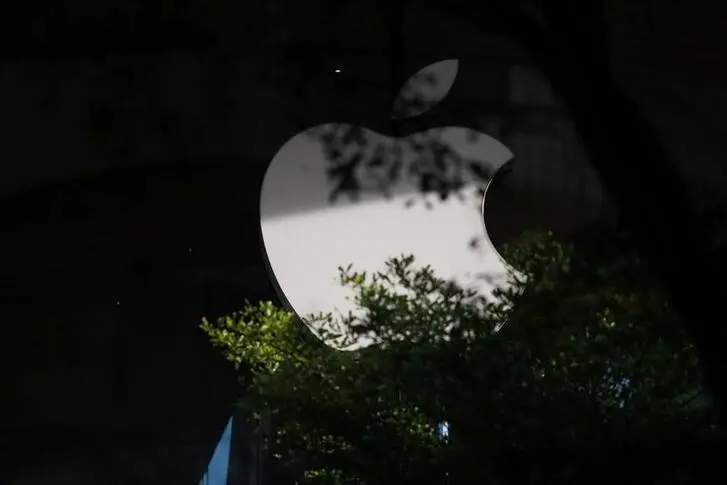PHOTO
(The author is a Reuters Breakingviews columnist. The opinions expressed are her own.)
NEW YORK - Apple's replacement for its iPhone cash cow is arguably its services business. The $2.4 trillion technology firm hauled in nearly $16 billion in revenue last quarter from charging customers for cloud storage and taking cuts from payments in its App Store.
The iPhone, the creation of former boss Steve Jobs, paved the way to a groundbreaking market value of $1 trillion, now in the rear-view mirror. The company led by Tim Cook on Wednesday reported a record $111 billion in total sales for the quarter ending Dec. 26, up 21% year-on-year. The growth spurt was partly due to a 24% rise in services revenue. The holidays, new 5G handsets and a spark in sales in China boosted demand for the iPhone as well.
It's not a slick, revolutionary new gadget, but hooking people up with recurring subscriptions and such is a good way to keep the money machine humming. Say services revenue increases 11% annually from Apple's last full year, a slowdown from the current pace as suggested by research firm Trefis. Give the mobile phone unit the benefit of 5% growth, weaker than last quarter but stronger than recent full years. Assume a gross margin of some 66% for services versus just over 30% for handsets. On those estimates, services could be making more gross profit for Apple than iPhones by 2024.
Unfortunately, though, lawmakers are circling Apple’s dominance over its App Store. There's also pressure from third parties like Spotify Technology and "Fortnite" producer Epic Games over the tech giant's cut of payments. And the revenue it gets from Alphabet's Google unit to make it the default search engine on the iPhone is an antitrust target, too.
A fresh face in the White House and Democratic control of the U.S. Congress won’t help Apple’s cause given the bipartisan frustration with Big Tech. Services may be Apple’s new golden goose, but it's at risk of a plucking.
CONTEXT NEWS
- Apple said on Jan. 27 revenue for the quarter ending Dec. 26 rose 21% year-over-year to $111 billion. Earnings were $28.8 billion, or $1.68 per diluted share, compared to $22.2 billion, or $1.25 per share for the same period in 2019.
(The author is a Reuters Breakingviews columnist. The opinions expressed are her own.)
(Editing by Richard Beales and Amanda Gomez) ((jennifer.saba@thomsonreuters.com; Reuters Messaging: jennifer.saba.thomsonreuters.com@reuters.net))





















